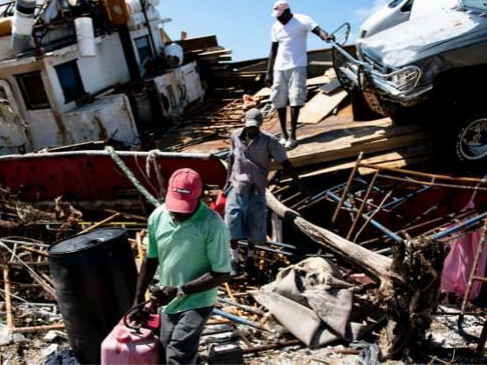- September 12, 2019

Hurricane Dorian was a storm, the likes of which, The Bahama Islands has never experienced before. When it touched down on Abaco and Grand Bahama, it left utter destruction in its wake, hovering over the islands as long as 53 hours, packing 185 mph winds and creating 25-foot storm surges. In the end, homes, businesses, clinics - entire communities, were completely obliterated. Thousands of families are displaced and thousands more are still listed as missing.
The cost to rebuild after such a tragedy is estimated in the billions. Thankfully, the world has rallied in aide of The Bahamas. The Caribbean, The United States, The UK, and China have all been instrumental in sending in finances, relief workers and military support to the affected islands. Still, it will be some time before a sense of normalcy is restored.
For individuals affected by Hurricane Dorian, the fear of a financial crisis can be an added source of stress. After a natural disaster, you may not know where to begin to get your finances back on track. Here are some tips that may help:
-
Think things through. In the middle of a crisis, the tendency is to act right away. But it is important that you don’t make any important financial decisions before you give yourself time to process your situation. Long story short, making a decision when your emotions are raw can lead to a deeper financial crisis.
-
Determine where you are financially. Your first course of action should be creating a financial plan. This includes an inventory of your income, expenses, and debt. If you have lost your main source of income and fear you will not be able to keep up with your debt, now is the time to talk to your creditors. You may be able to work out a revised payment plan. Find out if you are eligible for any disaster assistance from the government as well. As much as possible, keep up with your debt payments.
-
File your insurance claims as soon as possible. This goes without saying but the sooner you file your claim, the sooner your claim will be processed and the sooner you get the funds to get back to normal.
-
Determine if you can continue working. In the event that you have been injured and cannot work, determine if you can qualify for disability assistance. Apply as soon as possible to protect your flow of income.
-
Replace all your important documents. Make a list of the documents you’ve lost, i.e. passport, driver's license, bank statements, stock certificates, and recent bills. Contact the various agencies to have them replaced or to get copies as soon as possible.
-
Revisit your insurance coverage. You’ve probably learned some things about your current insurance coverage. Now is a good time to consider whether you have the right type and amount of property, health, disability, and life insurance. Talk to your insurance company about your options.
-
Set Up An Emergency Fund. Once you’ve recovered to some degree, take the steps to establish an emergency fund. The recommendation is that the fund is equal to three to six months of your living expenses. This fund can help you manage through other financial crises like losing your job. Keep these funds in a safe, easily accessible account and do not use it unless you face an emergency.
-
Create a will or establish a trust. Unfortunately, it is when disaster strikes that this point is most obvious. A will names your heirs and appoints a guardian if you have young children. An alternative to a will is a Trust Fund, where an individual transfers legal ownership of their assets to a Trustee to hold for the benefit of the beneficiaries, i.e. children. Speak with a Trust & Estate Planner to determine which option would work best or you. The point here though is to protect the people you love and your assets in the event that you die.
-
Review your financial goals. There’s nothing like a disaster to alter previous financial goals. Apart from the unforeseen expenses, it can cause you to ask important questions about your future. Questions like whether you should you spend less time at work and more time at home, whether you should change careers, retire early or pursue a lifelong dream may suddenly arise. Each of these come with financial consequences. Before you make major changes, do some careful planning. This may entail saving more, spending less, or reassessing your investment portfolio.
-
Get help. If you’ve been through a traumatic experience, it may be difficult for you to make sound financial decisions. Sit down with a professional who can help you formulate the best way forward.
The weeks and months following a natural disaster may be difficult. The important thing to remember is to stay calm and make rational decisions.



